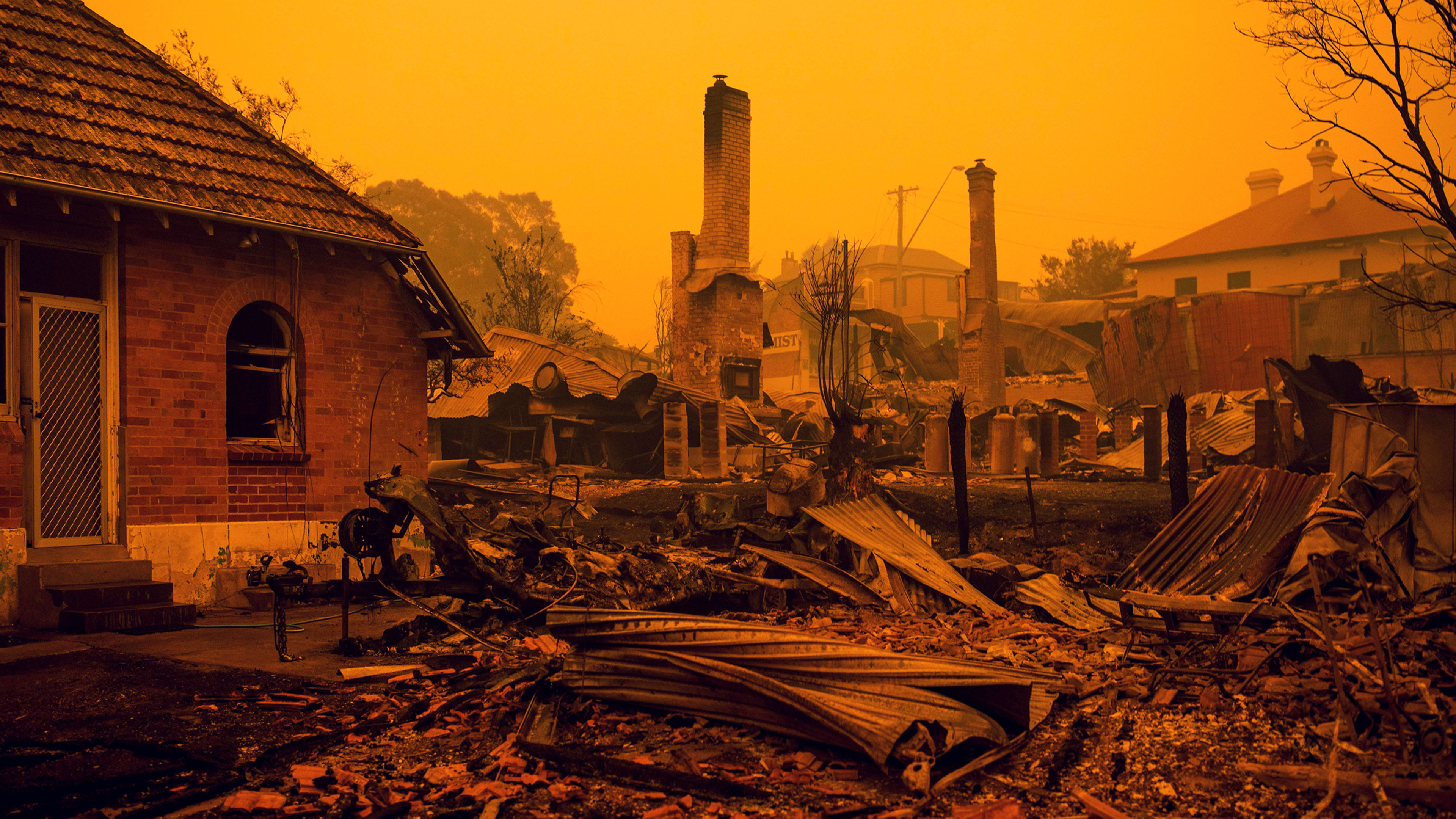Record-high temperatures, a persistent drought, and an abundance of dried vegetation that acts as fuel for flames have turned Australian bushfires into a national and global catastrophe. Climate change may not be the sole cause of these blazes, but it has made them worse, experts say, and now, Australian activists are calling for a tax on major fossil-fuel emitting companies in order to pay for the country’s fire management and recovery efforts.
“Businesses and everyday Australians are paying for impacts of climate change that are being fueled by fossil producers,” Richie Merzian, climate and energy program director at the progressive Australia Institute think tank, says in a recent statement. “Every tonne of coal or gas mined in Australia adds approximately 2.5 tonnes of heat trapping gas to the atmosphere, making bushfires more frequent and more intense. It’s time they made a contribution to paying for the climate disasters they are fueling.”
The Australian Institute says that a tax of $1 per ton of embodied emissions would raise $1.5 billion per year for the National Climate Disaster Fund—a monetary effort that the institute has been calling for since at least December 2019. In a paper published that month, Mark Ogge of the Australian Institute wrote that, “Australia urgently needs a dedicated, independently administered fund to meet the escalating costs of natural disasters due to global warming.”
The economic impact of Australia’s bushfires is set to surpass $4.4 billion, the former record cost, which was set by 2009’s Black Saturday bushfires, among the country’s all-time worst fire disasters. The Australia Institute says those one-day fires actually cost upwards of $7 billion, and that the current blazes, which have no end in sight, could still add up to a higher cost. The tax on high-polluting companies could be used to help businesses recover, fund more firefighting equipment like water-dropping planes, or help fund paid leave for volunteer firefighters.
Australian prime minister Scott Morrison did recently announce that at least $2 billion in funds would go toward bushfire recovery and that “if further [government] funds are required, further funds will be provided.” But to the Australian Institute and other climate activists, it’s not enough to solely rely on state and national budgets when it comes to handling climate catastrophes.
Two-thirds of Australians say that governments should “mobilize all of society to tackle climate change, like they did during the World Wars,” according to Australian Institute research. (Also according to their research, 62% of Australians would support a policy that taxes fossil fuel producers in order to ease the financial burden on the public of these fires .) “It is a fundamental principle of economics,” Merzian says in a statement, “that companies profiting from activities that cause damage to others should pay the costs of that damage.”
Recognize your brand’s excellence by applying to this year’s Brands That Matter Awards before the early-rate deadline, May 3.
